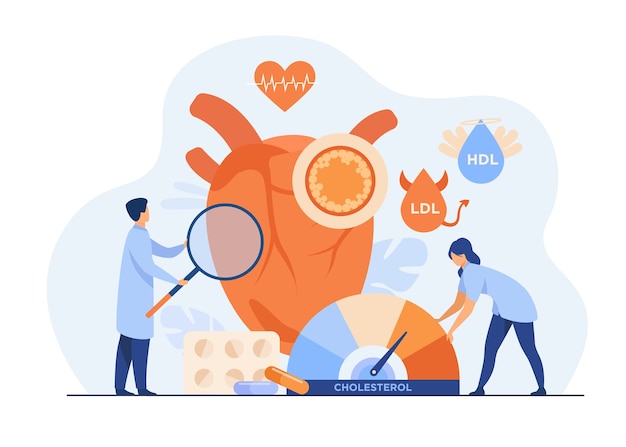
Taking care of your heart health is in your hands, whether you’re recovering from heart disease or trying to prevent it. Making changes in how you manage your health can significantly impact your heart’s well-being. Monitoring spikes in cholesterol and blood pressure through lifestyle adjustments is key, even though changing lifelong habits can be tough. Still, these changes are vital to prevent or reduce the effects of heart attacks, strokes, and other heart diseases.
Practices like a short walk, weightlifting, a balanced breakfast, and choosing nutrients over empty calories can keep heart disease at bay, according to Harvard Health. Small lifestyle tweaks can lead to big health outcomes.
**Steps for Better Heart Health:**
1. **Sleep Well:** Aim for 6-8 hours of quality sleep. Lack of restful sleep can indicate early heart disease. If sleep issues persist, consult a doctor.
2. **Monitor Blood Pressure:** Check your blood pressure regularly, especially if you’re over 40 or have high blood pressure. Cut down on salt, limit alcohol, manage stress, and exercise to help keep blood pressure in check.
3. **Reduce Saturated Fats:** Avoid full-fat dairy and meats. Choose lean options and eliminate trans fats found in processed foods. Check your cholesterol regularly.
4. **Check for Diabetes:** High blood sugar can damage arteries. If you’re at risk, work with your doctor to manage diet, exercise, and medications if needed.
5. **Exercise Regularly:** Aim for at least 30 minutes of moderate activity, five days a week. Avoid sitting for long periods and choose nutrient-rich, fiber-heavy foods.
6. **Think Beyond Weight:** Being healthy isn’t just about the scale. Manage stress and emotional eating with professional help if necessary.
7. **Quit Smoking:** Avoid both smoking and secondhand smoke. Try healthier stress-relief methods like yoga or meditation.
8. **Adopt a Healthy Lifestyle:** Make diet and exercise changes to reduce heart disease risk and stabilize arterial plaques.
9. **Combine Medicines with Natural Methods:** Use prescribed medications alongside lifestyle improvements for better heart health.
10. **Avoid Sedentary Habits:** Regular movement enhances heart health and reduces risks of various conditions.
11. **Diversify Exercises:** Incorporate aerobic, resistance, and flexibility exercises for overall health.
12. **Lose Weight:** Especially belly fat, as it can lead to heart issues like arteriosclerosis.
13. **Lower Bad Cholesterol:** Focus on reducing LDL and non-HDL cholesterol through diet and lifestyle changes.
14. **Cut Addictions:** Limit alcohol and avoid tobacco to reduce health risks.
15. **Control Blood Pressure:** Keep it within normal ranges through diet and exercise.
16. **Prevent Diabetes:** Manage diabetes or pre-diabetes with a healthy diet and regular activity.
17. **Reduce Inflammation:** Adopt a healthy lifestyle to lower inflammation markers in your body.
18. **Manage Triglycerides:** Keep these fats in check with diet and exercise.
19. **Handle Stress Effectively:** Stress management is crucial for heart health. Consider relaxation techniques.
20. **Ensure Adequate Vitamin D:** Sun exposure helps lower blood pressure naturally.
21. **Vary Workouts:** Different exercises, like swimming and strength training, can benefit heart health.
22. **Combat Obesity:** Address obesity to reduce heart disease risks.
23. **Follow a Heart-Healthy Diet:** Avoid processed foods and focus on nutritious, whole foods.
24. **Limit Salt:** Too much salt raises blood pressure. Read labels carefully.
25. **Choose Superfoods:** Incorporate foods rich in antioxidants to boost heart health.
26. **Stay Active:** Regular exercise is crucial to fend off heart disease.
27. **Monitor Cholesterol:** Keep track of cholesterol numbers for heart health.
28. **Consider Meditation:** Meditation can reduce stress and benefit heart health.
29. **Maintain Oral Hygiene:** Good oral health can lower heart disease risks.
30. **Watch for Symptoms:** Be aware of warning signs for heart attacks and strokes.
**Conclusion:**
Good heart health relies on various factors, from diet and exercise to stress management and sufficient sleep. Avoid processed foods, and focus on positive coping strategies like meditation. By integrating these practices, you can improve your coronary health and reduce the risk of serious heart conditions.